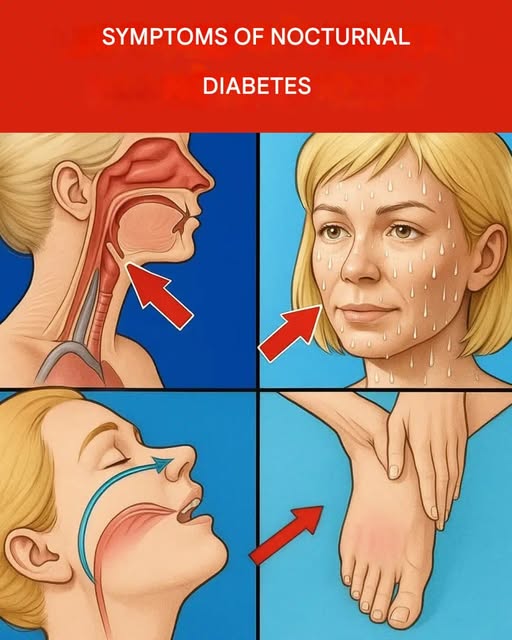ADVERTISEMENT
Unstable blood sugar levels can cause fluctuations in adrenaline and cortisol, making it difficult to fall or stay asleep. You may feel tired even after a full night in bed.
5. Waking Up Thirsty:
Extreme thirst at night is a classic sign of high blood sugar. It may be accompanied by a dry mouth and indicates dehydration.
Tips for Managing Night-Time Diabetes Symptoms:
Eat a balanced, low-carb dinner and avoid late-night snacking.
Monitor your blood sugar before bed.
Stay hydrated, but reduce fluid intake an hour before sleeping.
Talk to your doctor about adjusting medications if symptoms persist.
FAQ:
Q: Should I test my blood sugar at night?
A: Yes, especially if you experience any symptoms. Testing at bedtime and in the middle of the night can provide useful insights.
Q: Are nighttime symptoms a sign of worsening diabetes?
A: Not always, but they may indicate poor control and should be discussed with a healthcare provider.
ADVERTISEMENT
